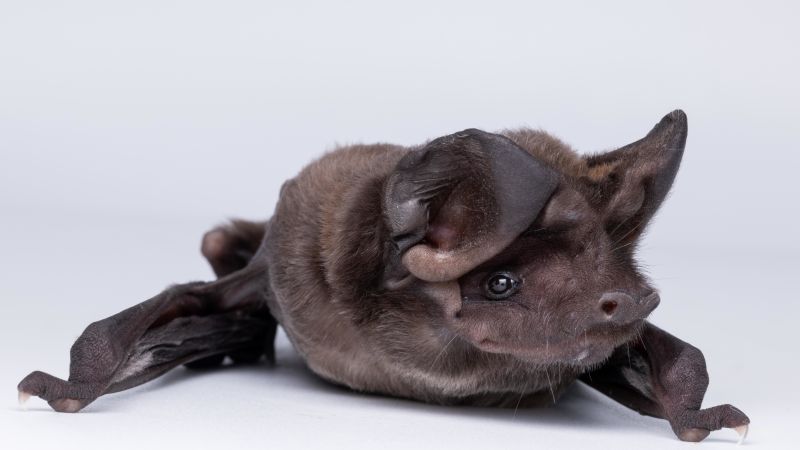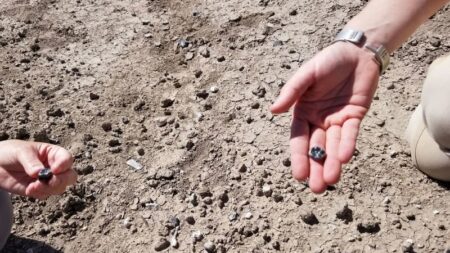The role of bats in our ecosystem is significant yet often overlooked. Frequently cast in a negative light, bats are often associated with folklore tales of vampires and are blamed as vectors for various diseases, reinforcing a biased, fear-infused narrative against them. However, this perception does not reflect the ecological importance these flying mammals possess. Bats provide a multitude of benefits, including pest control, pollination, and seed dispersal, vital for maintaining ecosystem health. Unfortunately, bat populations are dwindling worldwide, leading to alarming repercussions for biodiversity and agriculture.
At the forefront of changing the narrative surrounding bats is Rodrigo Medellín, a senior professor at the University of Mexico and a passionate advocate for bat conservation. His fascination with these creatures began at the tender age of 13 when he cradled his first bat. Since that pivotal moment, Medellín dedicated his life to studying and protecting bats, wanting others to experience the joy he finds in their presence. He describes caves—home to many species of bats—as calming sanctuaries, filled with silence only interrupted by the occasional squeals of bats. This feeling of peace is what he aims to share with those he encounters.
Medellín has become a key figure in the global bat conservation movement, aligning with initiatives such as Rolex’s Perpetual Planet Initiative, which seeks to raise awareness on sustainability issues. He has also taken the lead in establishing the Latin American Network for Bat Conservation and Global South Bats, fostering collaboration among bat scientists. With over 1,400 bat species worldwide—making up roughly 20% of all mammal species—these creatures are truly remarkable. They possess the singular ability for powered flight, which enables them to thrive in diverse habitats across the globe. Their sophisticated echolocation abilities allow bats to navigate in complete darkness, preying on insects with laser-like precision.
Despite their vital ecological functions, bat populations are fragile. They reproduce at a slow rate, typically giving birth to just one pup each year, which hampers recovery efforts for dwindling populations. Medellín emphasizes that the negative perception of bats is largely unfounded, stating that they are among the most misjudged animals on the planet. This narrative has been further complicated by the COVID-19 pandemic, as bats have been incorrectly linked to the virus’s origins, intensifying existing fears and stigmas.
Contrary to popular belief, bats are not significantly more dangerous disease carriers than domesticated animals. Medellín points out that the fears surrounding bats, especially those linked to disease, have been exaggerated. Their ecological contributions are immense; for example, one species along Mexico’s northern border, numbering up to 30 million individuals, collectively consumes around 300 tons of insects nightly. This pest control service is just the beginning of their ecological impact.
Fruit-eating bats are essential for seed dispersal. By consuming fruits and traveling long distances in search of food, these bats drop seeds far from their original source, facilitating forest regeneration and enhancing plant diversity—beneficial practices that support various organism life cycles. Notably, bats also aid in the pollination of numerous plants, including agave, which is essential for tequila production.
The threats to bat populations are predominantly human-induced, including habitat destruction, pesticide usage, and disease outbreaks like white-nose syndrome—a devastating fungal condition affecting many species. Medellín urges a communal effort to recognize the consequences if bat populations were to decline drastically, such as increased agricultural pest populations and ecological imbalances.
To combat these challenges, Medellín is committed to shifting public perceptions and enhancing awareness around bats’ critical roles. Through various projects that promote bat-friendly agriculture or international conservation efforts, he endeavors to create avenues for the appreciation of bats and the pivotal role they play in ecosystem health. By continuing to educate the public with evidence, images, and facts, Medellín has witnessed a transformation in how many people perceive bats—from fear to fascination. He invites those still afraid to learn more about bats, believing they will be pleasantly surprised and perhaps even develop a newfound appreciation for these remarkable creatures. In Medellín’s view, understanding and knowledge are crucial to fostering love and respect for bats, recognizing their indispensable role in the environmental tapestry of life.












